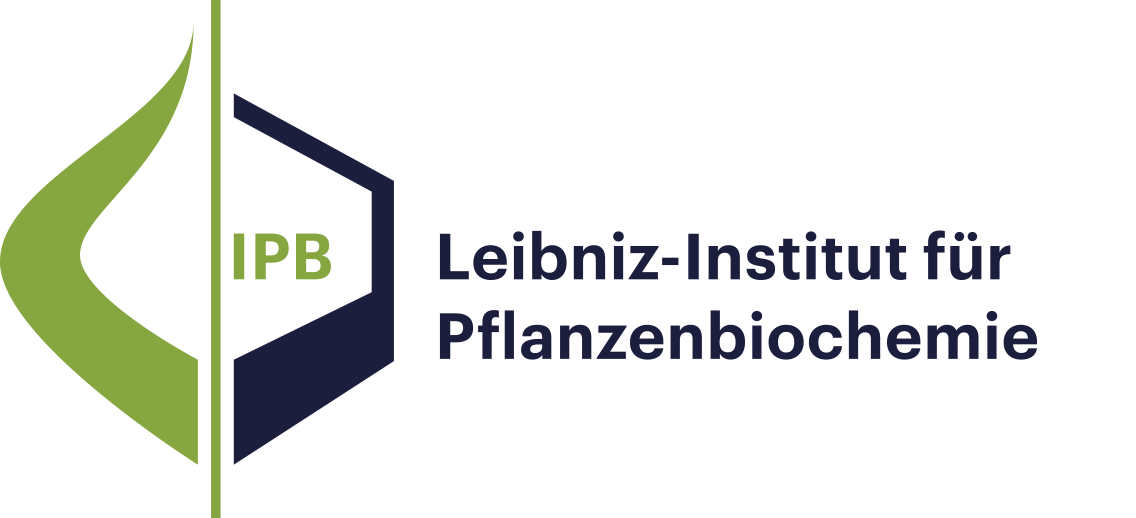- Ergebnisse als:
- Druckansicht
- Endnote (RIS)
- BibTeX
- Tabelle: CSV | HTML
Publikation
Publikation
Leitbild und Forschungsprofil
Molekulare Signalverarbeitung
Natur- und Wirkstoffchemie
Biochemie pflanzlicher Interaktionen
Stoffwechsel- und Zellbiologie
Unabhängige Nachwuchsgruppen
Program Center MetaCom
Publikationen
Gute Wissenschaftliche Praxis
Forschungsförderung
Netzwerke und Verbundprojekte
Symposien und Kolloquien
Alumni-Forschungsgruppen
Publikationen
Publikation
Reversible protein phosphorylation is a widespread posttranslational modification that plays a key role in eukaryotic signal transduction. Due to the dynamics of protein abundance, low stoichiometry and transient nature of protein phosphorylation, the detection and accurate quantification of substrate phosphorylation by protein kinases remains a challenge in phosphoproteome research. Here, we combine tandem metal-oxide affinity chromatography (tandemMOAC) with stable isotope 15N metabolic labeling for the measurement and accurate quantification of low abundant, transiently phosphorylated peptides by mass spectrometry. Since tandemMOAC is not biased toward the enrichment of acidophilic, basophilic, or proline-directed kinase substrates, the method is applicable to identify targets of all these three types of protein kinases. The MKK7-MPK3/6 module, for example, is involved in the regulation of plant development and plant basal and systemic immune responses, but little is known about downstream cascade components. Using our here described phosphoproteomics approach we identified several MPK substrates downstream of the MKK7-MPK3/6 phosphorylation cascade in Arabidopsis. The identification and validation of dynamin-related protein 2 as a novel phosphorylation substrate of the MKK7-MPK3/6 module establishes a novel link between MPK signaling and clathrin-mediated vesicle trafficking.
Publikation
A delicate balance in cellular signaling is required for plants to respond to microorganisms or to changes in their environment. Mitogen-activated protein kinase (MAPK) cascades are one of the signaling modules that mediate transduction of extracellular microbial signals into appropriate cellular responses. Here, we employ a transgenic system that simulates activation of two pathogen/stress-responsive MAPKs to study release of metabolites and proteins into root exudates. The premise is based on our previous proteomics study that suggests upregulation of secretory processes in this transgenic system. An advantage of this experimental set-up is the direct focus on MAPK-regulated processes without the confounding complications of other signaling pathways activated by exposure to microbes or microbial molecules. Using non-targeted metabolomics and proteomics studies, we show that MAPK activation can indeed drive the appearance of dipeptides, defense-related metabolites and proteins in root apoplastic fluid. However, the relative levels of other compounds in the exudates were decreased. This points to a bidirectional control of metabolite and protein release into the apoplast. The putative roles for some of the identified apoplastic metabolites and proteins are discussed with respect to possible antimicrobial/defense or allelopathic properties. Overall, our findings demonstrate that sustained activation of MAPKs alters the composition of apoplastic root metabolites and proteins, presumably to influence the plant-microbe interactions in the rhizosphere. The reported metabolomics and proteomics data are available via Metabolights (Identifier: MTBLS441) and ProteomeXchange (Identifier: PXD006328), respectively.

